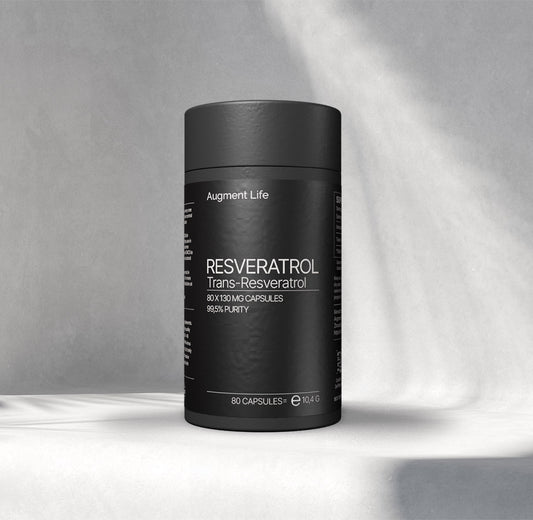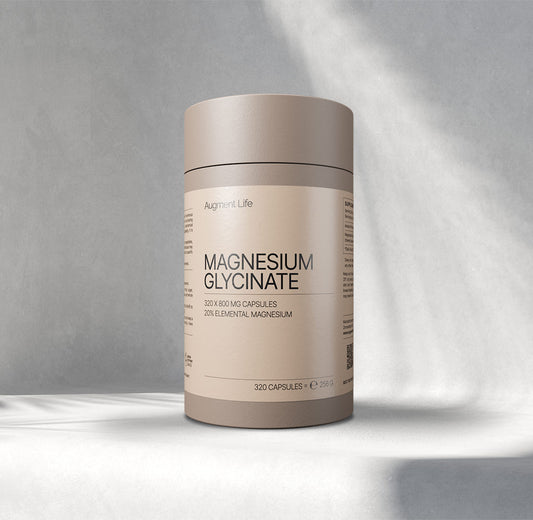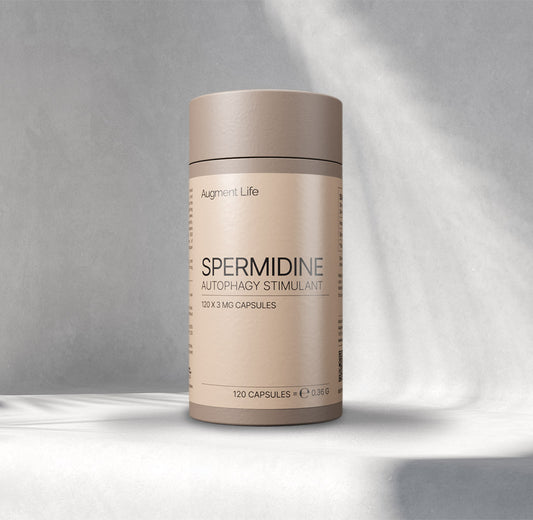Finding diets, minerals, and supplements that promote healthy aging and avoid disease is crucial as the world's population ages. Age-related diseases can be major worldwide health concerns, and they can provide extra challenges due to their early onset.
A healthy diet can significantly contribute to increasing longevity. Research has also examined the impact of various foods and nutrients on memory, physical ability, and mood as people age. Understanding these connections can help shape better health advice for older adults who want to stay active, sharp, and independent for as long as possible (1).
For more information regarding diet in healthy aging, please continue reading this article.
Top dietary patterns backed by science: Foods that make you age slower
According to modern scientific research, the following dietary patterns are most strongly associated with promoting healthy aging and slowing down the aging process (1):
- Alternative Healthy Eating Index (AHEI): This dietary pattern was associated with healthy aging in recent long-term studies. Individuals who adhered to the AHEI demonstrated improved cognitive, physical, and mental health as they aged (1). Foods: Whole grains, fruits, vegetables, legumes, nuts, and healthy fats (like olive oil), with limited consumption of red and processed meats, sugary drinks, and trans fats.
- Mediterranean Diet (MedDiet): Known for its heart health and anti-inflammatory benefits, it lowers chronic disease risks and age-related brain decline. Foods: Olive oil, fish, vegetables, fruits, whole grains, legumes, nuts, and moderate red wine.
- Healthful Plant-Based Diet (hPBD): Focusing on whole, nutrient-dense plant foods, this diet supports a healthy gut, reduces inflammation, and promotes longevity. Foods: Fresh fruits and vegetables, whole grains, legumes, nuts, seeds — with minimal to no processed foods or animal products.
- Dietary Approaches to Stop Hypertension (DASH Diet): Designed to manage blood pressure, the DASH diet also aids in preventing chronic illnesses and promotes overall healthy aging. Foods: Similar to the Mediterranean diet, but with an added focus on low-sodium options, low-fat dairy, lean proteins, whole grains, and plenty of fruits and vegetables.
Supplements vs. Diet: how to eat healthy food everyday?
Diet plays a significant role in healthy aging, and supplements can be used to address specific nutrient deficiencies. Supplementation can assist with age-related issues; for instance, supplements may increase energy levels and support cognitive function by potentially delaying memory problems.
Balanced diets, exemplified by the Mediterranean Diet or the Alternative Healthy Eating Index, exhibit the most significant association with positive long-term health outcomes. A nutrient-rich diet should be supplemented, not replaced.
Older individuals may benefit from supplementation with vitamin D, vitamin B12, or omega-3 fatty acids, particularly when these supplements are integrated into an overall balanced diet (3).
Augment Life offers a wide range of supplements to support longevity. More information about some of them can be found here:
The connection between sarcopenia and healthy aging impact factor
Sarcopenia is the progressive loss of muscle mass, strength, and function that commonly affects older adults, leading to frailty, reduced mobility, and a higher risk of falls and hospitalization.
Nutrition is crucial for preventing and managing sarcopenia. High-quality protein from lean meats, dairy, legumes, and eggs supports muscle maintenance. Vitamin D, antioxidants, and omega-3 fatty acids promote muscle health and reduce inflammation. Early interventions like exercise and maintaining good dietary habits across the lifespan are essential for muscle strength in older age (4).
Managing sarcopenia with diet enhances independence and quality of life and decreases age-related health issues (3).
The importance of including hydration in the diet as we age
Maintaining adequate hydration is essential for healthy aging. Older adults are more susceptible to dehydration due to physiological and cognitive changes. Insufficient fluid intake may elevate the risk of:
- hospitalization,
- cardiovascular complications,
- renal issues,
- infections,
- falls,
- cognitive impairment (2).
Health authorities recommend a daily intake of 1.6 liters for women and 2.0 - 2.5 liters for men. Dehydration may worsen mental and physical performance, impair blood pressure regulation, and raise the risk of chronic diseases like diabetes and heart disease. Dehydration can accelerate neurodegenerative processes (2).
Maintaining adequate hydration is crucial as it supports cognitive functions, aids recovery after illness, assists in weight management, and enhances the overall quality of life in aging (2).
Anti-aging nutrition tips backed by the latest 2025: What makes you age slower
A major study followed over 100,000 participants for up to 30 years to assess how long-term dietary habits impact aging. Results showed that higher adherence to healthy dietary patterns significantly increased the odds of aging well-meaning living past age 70 (or even 75) with good physical, mental, and cognitive health and free from chronic disease (1).
Among the eight dietary patterns evaluated, the Alternative Healthy Eating Index (AHEI) showed the strongest association with healthy aging-boosting the odds by up to 2.24 times. Diets rich in fruits, vegetables, whole grains, unsaturated fats, nuts, legumes, and low-fat dairy were consistently linked with better outcomes. In contrast, diets high in trans fats, sodium, sugary drinks, and red or processed meats were linked to poorer health (1).
These results demonstrate how important diet is in the aging process. Plant-based, lightly processed diets can promote longevity and vigor, as can wise supplementation when necessary. Managing nutrition is one of the greatest choices that anyone who wants to age with vitality and independence can make.
Aging foods to avoid
To minimize premature aging, it is important to avoid certain types of foods. The kind of foods that promote body inflammation such as foods high in added sugar, saturated fats, and sodium, as well as processed foods and alcohol.
Inflammatory foods, such as refined sugars, processed meats, and trans fats, can trigger chronic low-grade inflammation in the body. Over time, this persistent inflammation may damage tissues, disrupt hormonal balance, and weaken the immune system. It’s closely linked to a higher risk of conditions like heart disease, diabetes, arthritis, and even cognitive decline.
It is never too late to change your habits and incorporate a healthier diet into your routine. Remember that your future and health depend on these changes.
Conclusion
Maintaining a balanced diet in midlife is essential to increase the probability of aging in a way that promotes physical, mental, and cognitive health. The Alternative Healthy Eating Index (AHEI) was the most successful dietary pattern in promoting healthy aging for both men and women among the top nutritional patterns examined.
In addition to limiting processed foods and added sugars, meals high in whole grains, fruits, vegetables, legumes, nuts, and healthy fats provide significant long-term benefits. These findings go beyond disease prevention, highlighting how smart nutrition choices can enhance the quality of life as we age. Prioritizing a balanced, science-backed diet is one of the best investments in healthy longevity.
Starting early with health care helps us age actively and healthily. Supplements can help when needed. Consistent healthy habits prevent and delay sarcopenia, which affects aging negatively. Adequate water intake and a balanced diet are vital for well-being at all life stages.
Discover more about nutrition and long-term health in our previous articles:
- Does drinking tea help you live longer?
- Do HIIT and Zone 2 workouts influence longevity?
- The longevity debate: can supplements replace exercise?
- Breaking the Aging Barrier: Marathons as an Anti-Aging Strategy
Literature sources:
- Tessier AJ, Wang F, Korat AA, Eliassen AH, Chavarro J, Grodstein F, Li J, Liang L, Willett WC, Sun Q, Stampfer MJ, Hu FB, Guasch-Ferré M. Optimal dietary patterns for healthy aging. Nat Med. 2025 Mar 24. doi: 10.1038/s41591-025-03570-5.
- Fekete M, Szarvas Z, Fazekas-Pongor V, Feher A, Csipo T, Forrai J, Dosa N, Peterfi A, Lehoczki A, Tarantini S, Varga JT. Nutrition Strategies Promoting Healthy Aging: From Improvement of Cardiovascular and Brain Health to Prevention of Age-Associated Diseases. Nutrients. 2022 Dec 22;15(1):47. doi: 10.3390/nu15010047.
- Tessier AJ, Chevalier S. An Update on Protein, Leucine, Omega-3 Fatty Acids, and Vitamin D in the Prevention and Treatment of Sarcopenia and Functional Decline. Nutrients. 2018 Aug 16;10(8):1099. doi: 10.3390/nu10081099.
- Robinson S, Cooper C, Aihie Sayer A. Nutrition and sarcopenia: a review of the evidence and implications for preventive strategies. J Aging Res. 2012;2012:510801. doi: 10.1155/2012/510801.












